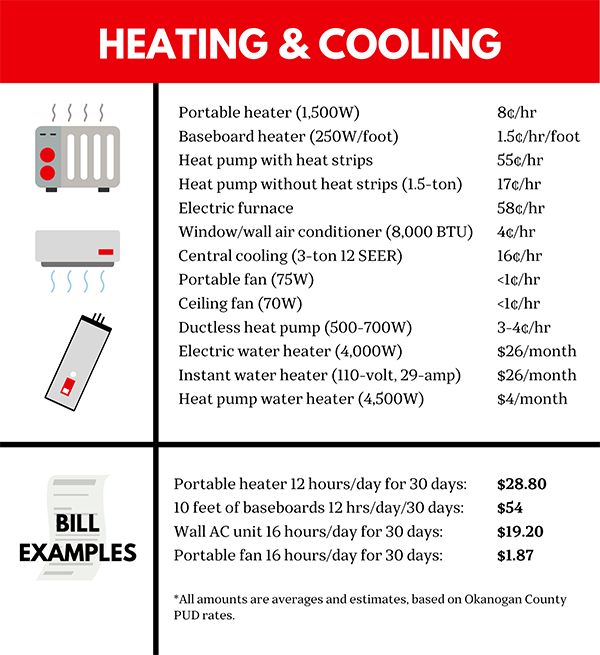This is Part 1 of 5 regarding the energy usage costs of common household items. The more we realize how much energy we use, the more we can find ways to save energy and save money!
We start our series with the greatest of all energy consumers – heating and cooling systems. This will be the largest portion of the energy charge on most bills.
Perhaps we don’t think about it each time we turn up the thermostat, or add one more space heater in the house, but it all adds up. For example, the average home’s electric furnace costs about 58 cents/hour to heat the home. That might not sound like much, unless you multiply the number of hours per day that furnace is running (let’s say 10 hours), then multiply that by 30 days (average billing period). Suddenly, that furnace just cost you $174 in a month.
Solutions: 1. Turn thermostats down a couple more degrees – a few degrees can save a few percent on your bill. 2. Make sure your system is maintained annually to run at its most efficient. 3. Check for any air leaks around windows or doors and seal them up. 4. Insulation is critical to help heating and cooling systems work their best.
Home weatherization is one of the biggest factors in determining how much energy a system uses to keep a house warm in winter (or cool in summer). The same HVAC system in the same square-footage will cost different amounts of energy/cost depending on the home's insulation, air leakage around windows and doors, etc.
Little known fact: The second biggest consumer of electricity in your home is your water heater. With average use of a standard 4,000W electric water heater, it’s about $26 of a monthly bill.
Solutions: 1. Make sure the thermostat is not set above 120 degrees – not only will this save you energy, but it’s safer for use! 2. Take shorter showers – just a few minutes shorter can add up per shower. 3. Use cold water in your laundry rinse instead of hot or warm water – this can make a huge difference (more on appliances coming up).
If you are looking at upgrading either of these big energy consumers, we have incentives for ductless heat pumps and heat pump water heaters. Find out more on our Energy Services pages.
